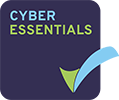How can food producers meet consumer demand for vegan traceability?
Veganuary is upon us once again, with record numbers of people expected to switch to a plant-based diet this month.
More than 580,00 people from over 200 countries signed-up to last year’s Veganuary campaign, with over 825 new vegan products and menus launched. Organisers have reported that 82% of participants maintained a dramatic reduction in animal-based product consumption long after Veganuary was over, with 30% maintaining a fully vegan diet following the month-long pledge.
Mintel says that meat-free food sales are expected to exceed £1.1 billion by 2024, and high profile producers such as Heck Foods see the shift towards climatarian and flexitarian diets being a key driver for growth in 2022.
As more and more food producers add vegan lines to their product portfolios, how can manufacturing practices keep pace and, importantly, how can manufacturers eliminate the risk of cross contamination between meat and meat-free production lines?
Keeping animal-derived ingredients out of the food chain
Food grade lubricants are now widely accepted, with products used across most food and drink production facilities as part of ongoing maintenance routines to reduce the risk of contamination.
Today’s maintenance engineers are far more aware of the importance and benefits of using food grade lubricants, accustomed to choosing products with NSF registration, and have come to expect this as standard from lubricant suppliers.
Now, manufacturers are shifting their focus beyond food grade into specific areas such as Kosher and Halal, scrutinising the presence of allergens or certain raw materials in the oils and greases they use and, increasingly, looking for products that are suitable for use on vegan production lines.
With over 90% of vegans and vegetarians looking for vegan verification on the products they buy, it is important for manufacturers to be able to offer reassurances throughout the supply chain. Equally, lubricant suppliers need to be able to offer guidance alongside high performing products that can support manufacturers on their journey to meat-free production.
Using the right lubricants in the right applications
Another important way of avoiding cross contamination is by making sure the right products are used on the right equipment throughout your factory.
The term food grade is broad, and covers a wide range of products and applications. It’s important to recognise the requirements of each process in your food or drink manufacturing facility and choose the right lubricant for the right application. Using the wrong product in the wrong place can create a contamination risk: exactly what you are aiming to avoid.
Different machinery and production environments have different maintenance requirements, and it is not as straightforward as selecting an NSF registered product and assuming it will be suitable for use on any piece of equipment. This article highlights the different NSF category codes, and where those products should and shouldn’t be used in food and beverage production facilities.
The evolution of maintenance lubricants
Many factories are producing vegan lines alongside their existing non-vegan ranges, and it is becoming increasingly important from a traceability perspective to demonstrate the use of vegan products on vegan production lines.
As such, lubricant manufacturers are being challenged on the ingredients used in their products and across their manufacturing facilities to help customers identify and eliminate products that contain animal-derived ingredients from maintenance regimes. This will only increase as more manufacturers develop plant-based product lines, and it’s why we secured Vegan Society certification for 46 products in our popular FOODLUBE range.
Seeking out the Vegan Trademark alongside the relevant NSF approvals adds another layer of reassurance and traceability, which will help you maintain production integrity. Choosing Vegan Society certified products also takes away the headache of sourcing different products for vegan and non-vegan applications. And it helps you rationalise lubricant use across your entire facility, secure in the knowledge that you can give your customers the traceability assurances they are looking for.

